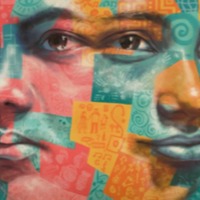
Hanan and Wissam
ISIS has singled out the Yezidi minority, notably its women and children, for particularly brutal treatment. In August 2014, ISIS fighters abducted hundreds, possibly thousands, of Yezidi men, women and children who were fleeing the IS takeover from the Sinjar region, in the north-west of the country. Hundreds of the men were killed and others were forced to convert to Islam under threat of death. Younger women and girls, some as young as 12, were separated from their parents and older relatives and sold, given as gifts or forced to marry ISIS fighters and supporters. Hanan and her son Wissam were taken by ISIS soldiers and sold first to an Algerian man, and then to a Syrian man. At five years old Wissam was taught to speak Arabic, read the Koran and trained in combat. If Hanan tried to stop the indoctrination of her son, she was subjected to physical beatings and threats to take him away. They were finally able to escape when Hanan told fighters she was going to call her cousin but instead called her husband who paid for his wife and son’s freedom.
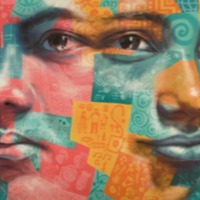
Vian
ISIS has singled out the Yezidi minority, notably its women and children, for particularly brutal treatment. In August 2014, ISIS fighters abducted hundreds, possibly thousands, of Yezidi men, women and children who were fleeing the IS takeover from the Sinjar region, in the north-west of the country. Hundreds of the men were killed and others were forced to convert to Islam under threat of death. Younger women and girls, some as young as 12, were separated from their parents and older relatives and sold, given as gifts or forced to marry ISIS fighters and supporters. Vian was 15 years old when kidnapped by ISIS in August 2014 and held for 4 months in Raqqa, Syria. Vian tells of the atrocities she witnessed against girls as young as 7 by ISIS men. One afternoon Vian ran away and was able to make it to Turkey where her Uncle picked her up and brought her home to her family.
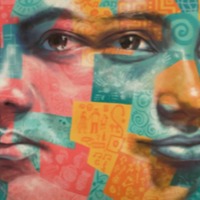
Madline
ISIS has singled out the Yezidi minority, notably its women and children, for particularly brutal treatment. In August 2014, ISIS fighters abducted hundreds, possibly thousands, of Yezidi men, women and children who were fleeing the IS takeover from the Sinjar region, in the north-west of the country. Hundreds of the men were killed and others were forced to convert to Islam under threat of death. Younger women and girls, some as young as 12, were separated from their parents and older relatives and sold, given as gifts or forced to marry ISIS fighters and supporters. Madline was 17 years old when she was kidnapped by ISIS in her hometown of Sinjar, Iraq in August 2014. She was held for 3 months before she and the other Yazidi women were able to escape.
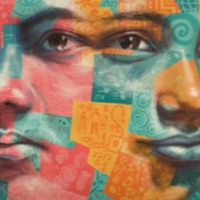
Nadia Murad
ISIS has singled out the Yazidi minority, notably its women and children, for particularly brutal treatment. In August 2014, ISIS fighters abducted hundreds, possibly thousands, of Yezidi men, women and children who were fleeing the IS takeover from the Sinjar region, in the north-west of the country. Hundreds of the men were killed and others were forced to convert to Islam under threat of death. Younger women and girls, some as young as 12, were separated from their parents and older relatives and sold, given as gifts or forced to marry ISIS fighters and supporters. Nadia Murad lived in the Sinjar district of Kurdistan in northern Iraq. Her village, Kocho, was taken by ISIS in August 2014 and people were told to convert to Islam or die. When ISIS failed to convert the Yazidi villagers, they first took the men and executed them, they took young boys to train in combat and kidnapped women and girls and enslaved them in domestic and sexual slavery. Nadine was taken with other women and girls to Mosul where they were distributed among Daesh fighters. Nadine was raped daily, forced to read the Koran and pray. After one unsuccessful attempt, Nadia was able to escape with the help of a Muslim family that lived nearby. She made it to the border with Kurdistan and was then among 1000 Yazidi women taken to Germany for treatment for their trauma.
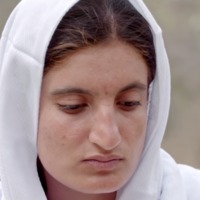
Perwin
There is an estimated 520,000 people in enslavement in the Arab States. Within the region, Syria, Iraq, and Yemen had both the highest prevalence of modern slavery and the highest absolute number of victims, accounting for 76 percent of the victims in the region. There is an estimated 174,000 people enslaved in Iraq (GSI 2018). In August 2014, IS invaded the province of Sinjar in Iraqi Kurdistan. Mostly Yezidis, a traditional religious community with ancient customs live there. Over 6,000 Yezidis were abducted. In early 2016 Sinjar was liberated by Kurdish Peshmergas. Many young women used by IS as slaves returned to their region.
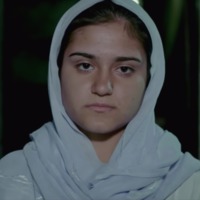
Cemila
There is an estimated 520,000 people in enslavement in the Arab States. Within the region, Syria, Iraq, and Yemen had both the highest prevalence of modern slavery and the highest absolute number of victims, accounting for 76 percent of the victims in the region. There is an estimated 174,000 people enslaved in Iraq (GSI 2018). In August 2014, IS invaded the province of Sinjar in Iraqi Kurdistan. Mostly Yezidis, a traditional religious community with ancient customs live there. Over 6,000 Yezidis were abducted. In early 2016 Sinjar was liberated by Kurdish Peshmergas. Many young women used by IS as slaves returned to their region.
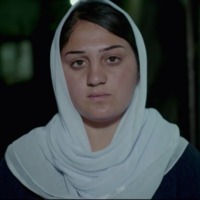
Ilham
There is an estimated 520,000 people enslaved in the Arab States. Within the region, Syria, Iraq, and Yemen had both the highest prevalence of modern slavery and the highest absolute number of victims, accounting for 76 percent of the victims in the region. There is an estimated 174,000 people enslaved in Iraq (GSI 2018). In August 2014, IS invaded the province of Sinjar in Iraqi Kurdistan. Mostly Yezidis, a traditional religious community with ancient customs live there. Over 6,000 Yezidis were abducted. In early 2016 Sinjar was liberated by Kurdish Peshmergas. Many young women used by IS as slaves returned to their region.
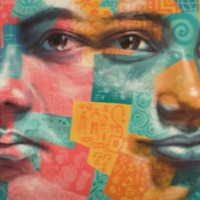
Gloria
There are an estimated 1,386,000 people living in modern slavery in Nigeria (GSI 2018). Since 2009, Nigeria’s homegrown Islamist insurgent movement, Jama’atu Ahlis Sunna Lidda’awati wal-Jihad, popularly known as Boko Haram, which means “Western Education is Forbidden,” has waged a violent campaign against the Nigerian government in its bid to impose Islamic law. The attacks have increasingly targeted civilians, mainly in the northeastern states of Borno, Yobe, and Adamawa. Borno State, the birthplace of Boko Haram, has suffered the highest number of attacks. A range of issues, including widespread poverty, corruption, security force abuse, and longstanding impunity for a range of crimes have created fertile ground in Nigeria for militant armed groups like Boko Haram. Gloria was abducted by Boko Haram in 2014. She was forced to convert to Islam, was married off to an insurgent and subjected to sexual violence.
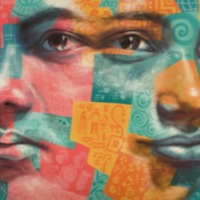
Ameen
The Global Slavery Index estimated that in 2016 modern slavery in Sub-Saharan Africa accounted from approximately 13.6 percent of the world's total enslaves population. The issue of child soldiers remains a problem across the region. South Sudan has been experiencing a civil war since 2013 and it is estimated that round 19,000 children are serving in the ranks of armed forces and militia groups in the country. Young children, mostly young boys, are forced to abduct, rape and kill members of their own community under threats to their own lives. While continued international pressure has led to the freeing of over 200 child soldiers in April, 2018, the number of children forced to fight continues to grow due to ongoing aggression in the region. Ameen, 17 years old, told Human Rights Watch about what happened to him after he was captured by Olony’s forces outside the UN base in September 2014.
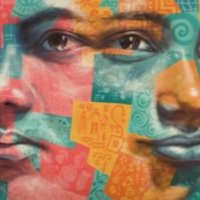
Jeanne
The Central African Republic is a source, transit and destination country for men, women and children trafficked for the purposes of forced labour and sexual exploitation. The majority of those trafficked are children subjected to sexual exploitation, domestic servitude, ambulant vending and forced labour. Moreover, civil unrest in the country has led rebels such as the anti-balaka to conscript children into armed forces in the northwestern and northeastern regions, as well as kidnap, rape and subject to conditions of modern slavery, many Muslim women in the country. Jeanne, 30, was caught by a group of 20 Seleka along with nine other women and girls— some as young as 16—as they fled when the Kidigra neighborhood came under attack in June 2014. She said the Seleka held her at a base for six months.
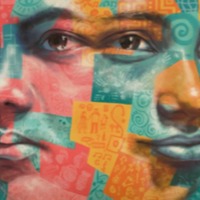
Victoire
The Central African Republic is a source, transit and destination country for men, women and children trafficked for the purposes of forced labour and sexual exploitation. The majority of those trafficked are children subjected to sexual exploitation, domestic servitude, ambulant vending and forced labour. Moreover, civil unrest in the country has led rebels to conscript children into armed forces in the northwestern and northeastern regions, as well as kidnap, rape and subject to conditions of modern slavery, many women in the country. Victoire, 39, told Human Rights Watch that Seleka fighters took her and four other women to a camp in Bambari in mid-2014. She said that during the month she spent there, multiple fighters raped the women and the fighters’ commander took her as his “wife”.
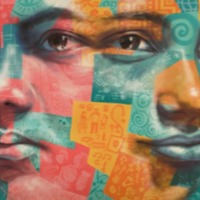
Angèle
The Central African Republic is a source, transit and destination country for men, women and children trafficked for the purposes of forced labour and sexual exploitation. The majority of those trafficked are children subjected to sexual exploitation, domestic servitude, ambulant vending and forced labour. Moreover, civil unrest in the country has led rebels such as the anti-balaka to conscript children into armed forces in the northwestern and northeastern regions, as well as kidnap, rape and subject to conditions of modern slavery, many Muslim women in the country. Angèle, 27, became pregnant and gave birth to a child as a result of repeated rape after Seleka fighters killed her husband and took her near Bambari in June 2014. She was held in sexual slavery for nine months with five other women and girls.
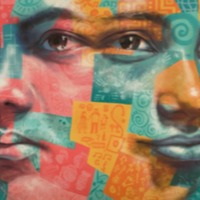
Charlotte B
In 2016, the estimates of modern slavery in Sub-Saharan Africa accounted for approximately 13.6 percent of the world's total enslaved population. As evident from surveys conducted in Ghana, Nigeria, South Africa and Ethiopia by Walk Free Foundation, slavery in Sub-Saharan Africa takes the form of forced labour and forced marriage. In Ghana, survey results suggest that there are an estimated 103,300 people enslaved in that country, of which 85 percent are in forced labour, and 15 percent are in forced marriage. For forced labour, the main industries of concern are farming and fishing, retail sales and then manual labour and factory work. In Nigeria, survey results suggest that forced labour is predominantly within the domestic sector, although it was impossible to survey in three regions due to high conflict. In South Africa, the industries most reported in the survey include the commercial sex industry, manual labour industries such as construction, manufacturing and factory work, and drug trafficking. Charlotte travelled from Croydon to Nigeria in 2014 to work as a tutor. However, once she arrived in Lagos her passport was confiscated, and she was prevented from leaving the house. Charlotte was able to return home after her parents rang her employers day and night, pressuring them to let her come home. When she arrived home, Charlotte became a member of the Croydon Community Against Trafficking in order to educate people on the nature of human trafficking.
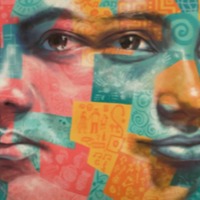
Latika C
The Global Slavery Index has estimated that there are almost 3 million people living in conditions of modern slavery in the region of the Middle East and North Africa. Oman is a transit and destination country for men and women primarily from India, Pakistan, Bangladesh and the Philippines, most of whom migrate willingly as domestic servants or low-skilled workers in the country’s construction, agriculture and service sectors. Trafficked persons subsequently experience conditions of modern slavery such as the confiscation of passports, restrictions on movement, non-payment of wages, long working hours without rest and physical or sexual abuse. Latika C. migrated because of family debt to the UAE for domestic work in October 2014. There, an agent took her to a recruitment agency in Al Ain. Shortly after, an Omani man hired her, and took her to Oman for domestic work. Her employers did not pay her salary for 5 months, beat her when she asked to be paid, confiscated her passport, and made her work 15 hours a day with no rest or day off. They falsely accused her of a crime after she asked for her money.
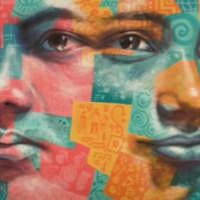
Randa
ISIS has singled out the Yezidi minority, notably its women and children, for particularly brutal treatment. In August 2014, ISIS fighters abducted hundreds, possibly thousands, of Yezidi men, women and children who were fleeing the IS takeover from the Sinjar region, in the north-west of the country. Hundreds of the men were killed and others were forced to convert to Islam under threat of death. Younger women and girls, some as young as 12, were separated from their parents and older relatives and sold, given as gifts or forced to marry ISIS fighters and supporters. Randa was abducted in August 2014 from her village south of Mount Sinjar with her parents and siblings and scores of other relatives. She was sold or given as a “gift” to a man twice her age who then raped her. Her father was killed along with other male relatives. Her mother, who was heavily pregnant when she was abducted, gave birth in ISIS captivity and was still being held with scores of other women and children from the family when Randa told her story. Some were being held in Syria, others in Iraq. Randa and two of her aunts and two uncles managed to escape at different times. She was 16 years old during her enslavement and when she told her story in late 2014.
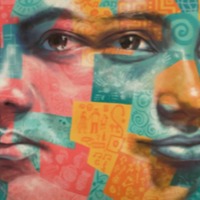
Fawziya
ISIS has singled out the Yazidi minority, notably its women and children, for particularly brutal treatment. In August 2014, ISIS fighters abducted hundreds, possibly thousands, of Yezidi men, women and children who were fleeing the IS takeover from the Sinjar region, in the north-west of the country. Hundreds of the men were killed and others were forced to convert to Islam under threat of death. Younger women and girls, some as young as 12, were separated from their parents and older relatives and sold, given as gifts or forced to marry ISIS fighters and supporters. Fawziya was abducted in August 2014 and was held in her captor's home with his family. She was 18 years old during her enslavement and when she told her story in late 2014.
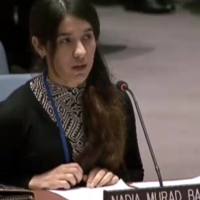
Nadia
Nadia Murad Basee Tah was one of thousands of people who have been enslaved by ISIS in Iraq. She is a member of the ethnic Kurdish minority Yazidi people. In August 2014, 10,000 Yazidis were killed or enslaved during the Sinjar Massacre in northern Iraq. ISIS seized control of Sinjar district, home to about 350,000 Yazidis. After killing the men, they took women and children into captivity. Along with all 1100 women and children from her village of Kocho, Nadia was captured. ISIS also killed six of her brothers, and her mother (who was too old for sexual enslavement). Nadia was taken with 150 other women and girls, ranging from nine to 28 years old, to Mosul. The women and girls were then distributed from centers. This system allows ISIS militants to take and use women and girls, then return us to the center. Like the other women and girls, Nadia was raped and tortured. Nadia escaped to a refugee camp, remained there for a year, then immigrated to Germany through a visa program to treat and host women and girls who have escaped ISIS captivity. In December 2015, the Yazda organization helped her to speak before the UN Security Council. Since then, she had campaigned internationally to raise awareness about the Yazidi genocide and the plight of Yazidi women and girls.